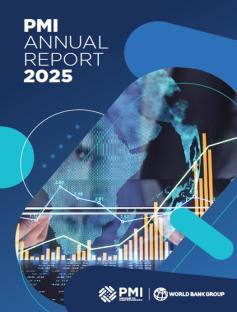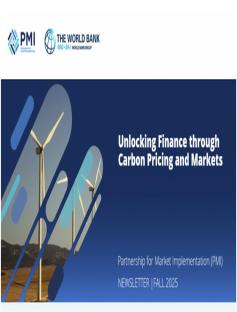Originally published at the World Bank’s blog Development and a Changing Climate: https://blogs.worldbank.org/en/climatechange/balancing-act--political-economy-and-the-pursuit-of-ambitious-ca
Yet, only a quarter of global emissions are currently covered by carbon pricing instruments, and both coverage and price levels remain too low. Yet, only a quarter of global emissions are currently covered by carbon pricing instruments, and both coverage and price levels remain too low.
Unlocking the potential of carbon pricing in reducing emissions requires not only setting a clear policy direction but also overcoming political economy challenges—often a delicate balancing of local concerns, industry interests, institutional capacities, and the prevailing political landscape.
There is now a wealth of implementation experience across diverse jurisdictions that demonstrate how potential political challenges particular to developing countries—including possible distributional impacts on vulnerable groups—can be overcome through strategic actions and policy design.
No one size fits all when it comes to carbon pricing, but all successful carbon pricing systems, besides working out how to manage any potential adverse economic and social impacts, have a few attributes in common:
Broadening ownership: carbon pricing policies with a broad and strong support base across diverse sectors of the economy are both politically more acceptable and stable and can be sustained and ambition raised even as administrations change.
Stakeholder dialogue: meaningful engagement with stakeholders, that seeks to integrate feedback from various affected groups often yield a robustly designed policy package.
Policy champions: while not all successful carbon pricing must have a policy champion, when available, these champions can be effective communicators, and can keep carbon pricing center stage even as priorities change. Champions in government are often the most powerful.
Windows of opportunity: once the case of carbon pricing has been established, there is usually not a set time to adopt carbon pricing policy; countries have often had to take advantage of windows of opportunity, and these can arise even in times of economic crisis.
Policy ecosystem: complementary policies and actions improve feasibility of carbon pricing by helping put in place supporting systems. The associated ecosystem of policies if well-aligned with carbon pricing can help ensure its effectiveness.
Policy iteration: pilot phases provide information that enables improvement and refinement prior to launch but are only the start. Successful carbon pricing systems continuously evaluate performance against objectives to improve, including through adjustment in scope, coverage, and ambition.
Building confidence: regulated entities often encounter difficulty coping with new regulation but authorities who act decisively to support those entities, including through communication, capacity building, or punitive measures for non-compliance build trust and confidence in the system.
“Balancing Act: The pursuit of Ambitious Carbon Pricing in Developing Countries” discusses these themes and more, and the strategies used to achieve them using several developing country case studies. Written and disseminated as part of the World Bank’s Partnership for Market Implementation’s global knowledge program, “Balancing Act: The pursuit of Ambitious Carbon Pricing in Developing Countries” is our effort to help democratize knowledge that has been gained on the political economy of carbon pricing. Our intention is that report is of use to policymakers and their advisors around the developing world, seeking meaningful insights to help advance their own carbon pricing initiatives.
This blog was published as the foreword to “Balancing Act: The pursuit of Ambitious Carbon Pricing in Developing Countries”. The report was published during Innovate4Climate 2024, the World Bank’s flagship climate event, which this year focuses on carbon markets and carbon pricing.




